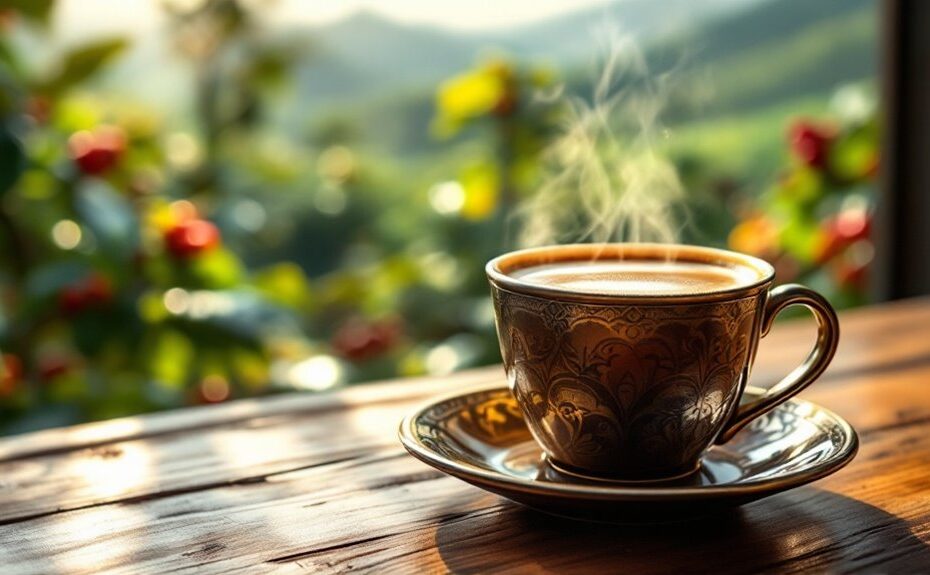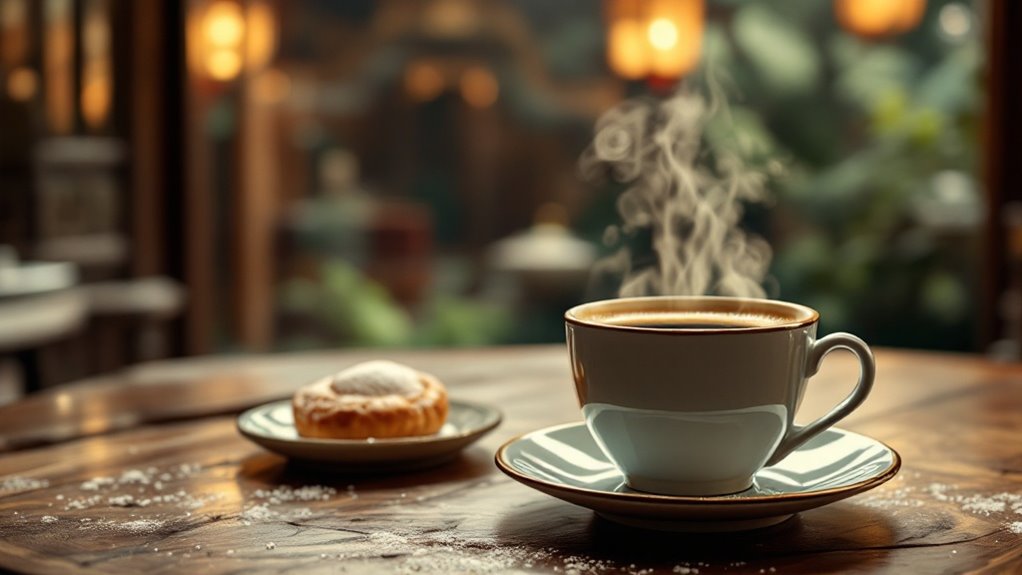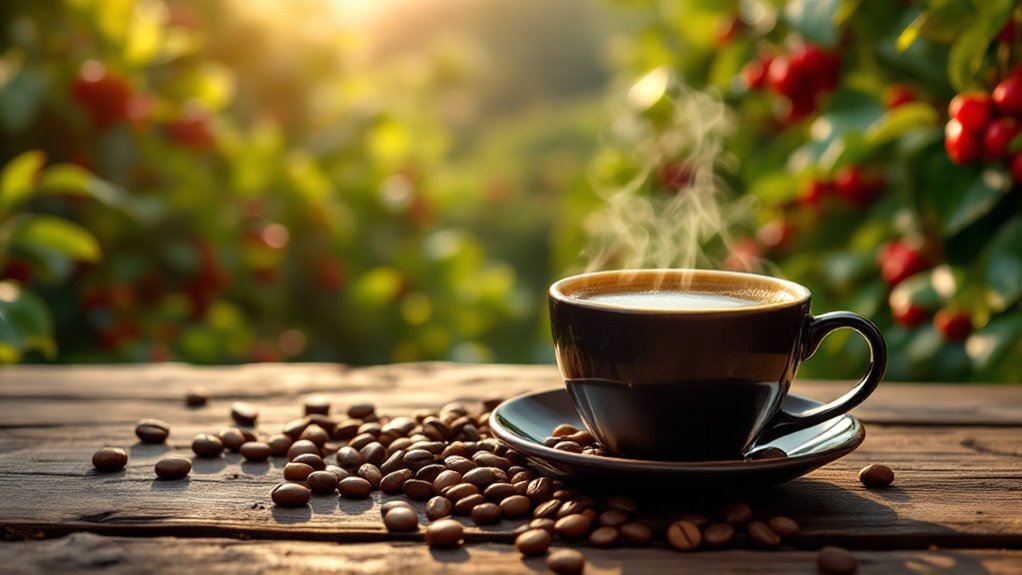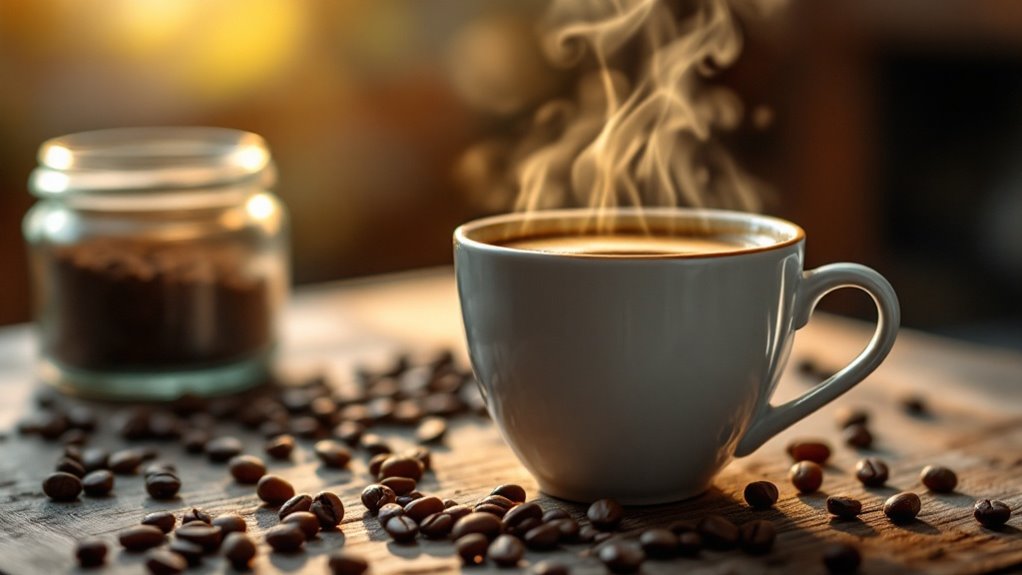







In a country where chai reigns supreme, coffee quietly carves its own legacy, blending tradition with innovation. You might think you know Indian coffee, but have you truly explored the depth of its flavors? From the robust, frothy South Indian filter coffee to the meticulously crafted single-origin brews by modern roasters, the choices are as diverse as the culture itself. What defines the best coffee in India isn't just taste—it's the story behind every sip. So, what makes one brew stand above the rest? The answer lies in a journey through history, craftsmanship, and evolving palates.
Key Takeaways
- Blue Tokai Coffee Roasters offers premium single-origin beans, ensuring high-quality, ethically sourced coffee with unique flavor profiles.
- Nescafé Classic, made from Robusta beans, is a widely popular instant coffee choice for its strong and consistent taste.
- Bru Gold combines Robusta and Arabica beans, delivering a rich aroma and balanced flavor, ideal for traditional South Indian coffee lovers.
- Tata Coffee emphasizes sustainable practices, offering premium Arabica-Robusta blends with Rainforest Alliance certification.
- Continental Malgudi Filter Coffee provides an authentic South Indian coffee experience, brewed traditionally for bold, aromatic flavors.
History of Coffee in India
Though tea often dominates conversations about Indian beverages, coffee has a rich and fascinating history in the country that dates back centuries. It began in the 17th century when Baba Budan smuggled seven coffee beans from Yemen and planted them in Karnataka's hills. These beans laid the foundation for India's coffee culture. By the 19th century, the British expanded coffee farming across South India, focusing on regions like Karnataka, Kerala, and Tamil Nadu. Today, India is the sixth-largest coffee producer globally, renowned for its Arabica and Robusta varieties. Indian coffee is often shade-grown, a practice that enhances its unique flavor and supports sustainable farming. Traditional brewing methods, like the Indian filter, remain popular, blending history with modern café culture.
Key Factors Defining Quality Coffee
The rich history of coffee in India sets the stage for understanding what makes a truly exceptional cup. Quality begins with the beans—whether you choose Robusta and Arabica or premium Arabica, the latter is prized for its smooth, less bitter profile. Freshly roasted coffee is essential; beans should be roasted in small batches and consumed within weeks to retain their aromatic coffee qualities. Ethical sourcing guarantees sustainability, while roast levels like medium roast or dark roast coffee beans influence the final flavor. A medium roast often delivers a balanced, flavorful cup, combining acidity, sweetness, and bitterness. Proper packaging, such as airtight containers, preserves the freshness of roasted beans, guaranteeing every sip lives up to its potential.
Top Coffee Brands in India
When exploring India's coffee scene, you'll find specialty brands like Blue Tokai Coffee Roasters, which focus on single-origin, high-quality beans, alongside household names such as Nescafé and Bru, known for their instant and chicory-blended options. Tata Coffee stands out for its sustainable practices and premium Arabica-Robusta blends, while Starbucks India offers a global café experience with ethically sourced beans and signature drinks. Each brand caters to distinct preferences, from traditional South Indian flavors to modern, artisanal brews.
Specialty Coffee Brands
As India's coffee culture continues to evolve, specialty coffee brands are redefining the way people experience their daily brew. Blue Tokai Coffee Roasters leads the charge with single-origin beans roasted in small batches, ensuring freshness and a premium coffee experience. Third Wave Coffee Roasters focuses on artisanal coffee, sourcing beans from sustainable farms to create complex flavor profiles. Flying Squirrel Coffee, based in Coorg, offers unique single-estate roasts like Sattva and Parama, emphasizing sustainability and traceability. Sleepy Owl Coffee simplifies brewing with ready-to-use cold brew packs and drip coffee bags, made from high-quality Indian beans. Araku Coffee, grown in Andhra Pradesh's Araku Valley, delivers organic, fair-trade coffee with smooth, fruity notes, supporting tribal farmers and enriching the Indian coffee market.
Popular Indian Coffee Choices
While India's coffee scene is rich with specialty brands, it's also home to a variety of popular coffee choices that cater to diverse tastes and preferences. If you're a fan of traditional flavors, Indian filter coffee, especially the South Indian filter style, is a must-try. Brands like Bru and Nescafé dominate the market, offering instant coffee and coffee powder blends that are perfect for your coffee in the morning ritual. For coffee lovers seeking premium options, Starbucks India and Blue Tokai Coffee Roasters deliver ethically sourced, high-quality brews. The Flying Squirrel stands out with its artisanal, single-origin offerings, popular in South India. These Top 10 Coffee Brands reflect India's vibrant coffee culture, blending tradition with modern trends.
South Indian Filter Coffee: A Cultural Icon
South Indian Filter Coffee, a beverage steeped in tradition, is more than just a drink—it's a cultural emblem of South India. This traditional beverage combines Robusta beans and Arabica Beans, blended with chicory, to create a rich, aromatic flavor that's both bold and balanced. Brewed overnight in a stainless steel filter, it's served freshly brewed in a dabara and tumbler, poured back and forth to achieve a frothy texture. Known for its strong taste and caramelly undertones, South Indian coffee holds immense cultural significance, often enjoyed as a daily ritual. Ranked among the world's best, its unique preparation and aromatic flavor make it a standout in global coffee drinking traditions, embodying the essence of South Indian heritage.
Specialty Coffee vs. Traditional Brews
When comparing flavor profiles, you'll find specialty coffee highlights nuanced, single-origin notes like citrus or floral undertones, while traditional brews like South Indian filter coffee offer bold, earthy flavors enhanced by chicory. Brewing techniques also differ, with specialty coffee often using pour-over or French press methods to preserve bean integrity, whereas traditional kaapi relies on a metal filter and slow drip for its signature richness. Both styles cater to distinct preferences, balancing innovation with cultural heritage.
Flavor Profiles Compared
As India's coffee culture evolves, the flavor profiles of specialty coffee and traditional brews stand in stark contrast, each offering distinct experiences for the palate. Specialty coffee, often made with single-origin beans, highlights complex flavor profiles like fruity, floral, and chocolatey notes, thanks to its focus on 100% Arabica beans. In contrast, traditional brews like South Indian filter coffee rely on a mix of Robusta and Arabica, delivering a robust flavour with earthy, slightly bitter undertones. Specialty roasters emphasize unique flavor nuances from regions like Coorg, while traditional coffee maintains a consistent, bold profile. Whether you prefer the intricate layers of specialty coffee or the aromatic intensity of traditional brews, both cater to diverse tastes in India's vibrant coffee scene.
Brewing Techniques Explored
While specialty coffee and traditional Indian brews share a common foundation, their brewing techniques diverge markedly, shaping distinct sensory experiences. Specialty coffee often employs methods like pour-over and AeroPress, which emphasize precision and highlight the nuanced flavors of single-origin beans. These techniques typically use lighter roasts to preserve the bean's origin characteristics. In contrast, traditional Indian filter coffee relies on slow drip brewing, combining finely ground coffee with chicory in a stainless steel filter, steeped overnight for a rich, aromatic brew. Medium to dark roasts dominate, offering a robust, earthy profile. Specialty coffee also explores cold brew, steeping coarse grounds in cold water for 12-24 hours, while espresso-based drinks extract intense flavors under high pressure, differing from the milder, milk-based Indian coffee.
Coffee Consumption Trends in India
India's coffee consumption is on a steady rise, growing at 5-6% annually, driven largely by urban millennials who are embracing premium and specialty coffee. Southern states dominate both production and consumption, contributing over 70% of India's coffee output. The café culture is flourishing, with millennials seeking unique coffee experiences, while home-brewing is gaining traction as a convenient alternative. Cold brew and nitro coffee are emerging as trendy options, reflecting a shift from traditional filter coffee to modern, innovative brewing methods. This evolving palate is reshaping the market, projected to reach $1.5 billion by 2025. As urban centers lead the charge, India's coffee landscape is diversifying, blending tradition with contemporary tastes.
Ethical Sourcing and Sustainability Practices
Ethical sourcing and sustainability practices are becoming integral to India's coffee industry as consumers increasingly prioritize transparency and environmental responsibility. Brands like Blue Tokai Coffee guarantee fair wages and sustainable farming practices by sourcing beans directly from South Indian estates. Tata Coffee, with its Rainforest Alliance certification, emphasizes ethical sourcing and eco-friendly practices. The Flying Squirrel Coffee promotes organic farming and biodiversity conservation by working with smallholder farmers in Coorg. Araku Coffee supports tribal farmers in Andhra Pradesh through fair-trade practices and organic cultivation. Third Wave Coffee Roasters partners with farms using eco-friendly practices, offering traceability for its single-origin beans. These efforts highlight a commitment to ethical sourcing, sustainable farming, and biodiversity conservation, securing a positive impact on both farmers and the environment.
Popular Coffee Products and Blends
As coffee culture continues to thrive in India, a variety of popular coffee products and blends have emerged to cater to diverse tastes and preferences. Among the best coffee brands, Blue Tokai Coffee Roasters stands out with its specialty coffee offerings like Vienna Roast and Attikan Estate, crafted from single-origin beans. For instant coffee lovers, Nescafé Classic, made from Robusta beans, delivers a consistent and energizing coffee experience. Bru Gold combines Robusta and Arabica beans for a rich aroma and balanced flavor. Starbucks India offers premium blends like Java Chip Frappuccino, appealing to urban coffee enthusiasts. For those seeking traditional South Indian flavor, Continental Malgudi Filter Coffee provides an authentic, aromatic experience. These blends guarantee every coffee lover finds their perfect cup.
Emerging Coffee Culture in Urban India
While urban India has long been a tea-drinking nation, its coffee culture is rapidly evolving, driven by a growing appetite for specialty brews and artisanal experiences. Coffee shops in India are thriving, with a 40% rise in specialty cafés over the past five years. Millennials and Gen Z are embracing the world of coffee, prioritizing quality and sustainability. Boutique coffee companies like Blue Tokai and Third Wave Coffee Roasters are expanding, offering unique coffee options and immersive café experiences. Cold brew and nitro coffee are gaining traction, with sales growing at 15% annually. Coffee drinkers are also exploring home-brewing methods, boosting equipment sales by 25%. This shift reflects a deeper connection between urban consumers, coffee farmers, and the coffee industry, reshaping India's café landscape.
Disclosure: As an Amazon Associate, I earn from qualifying purchases.






